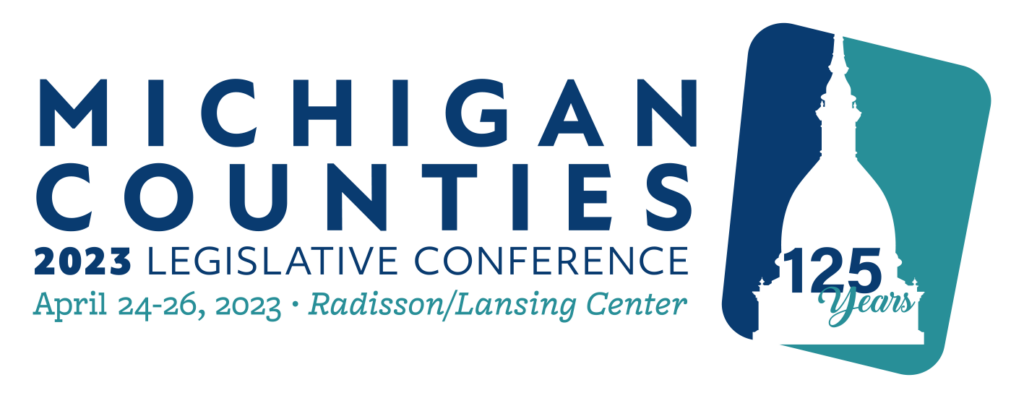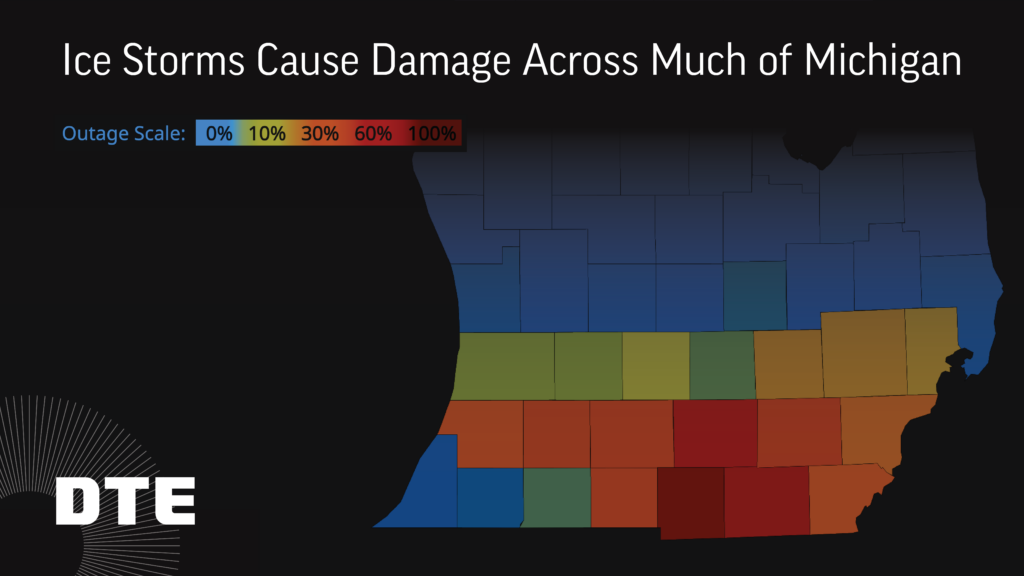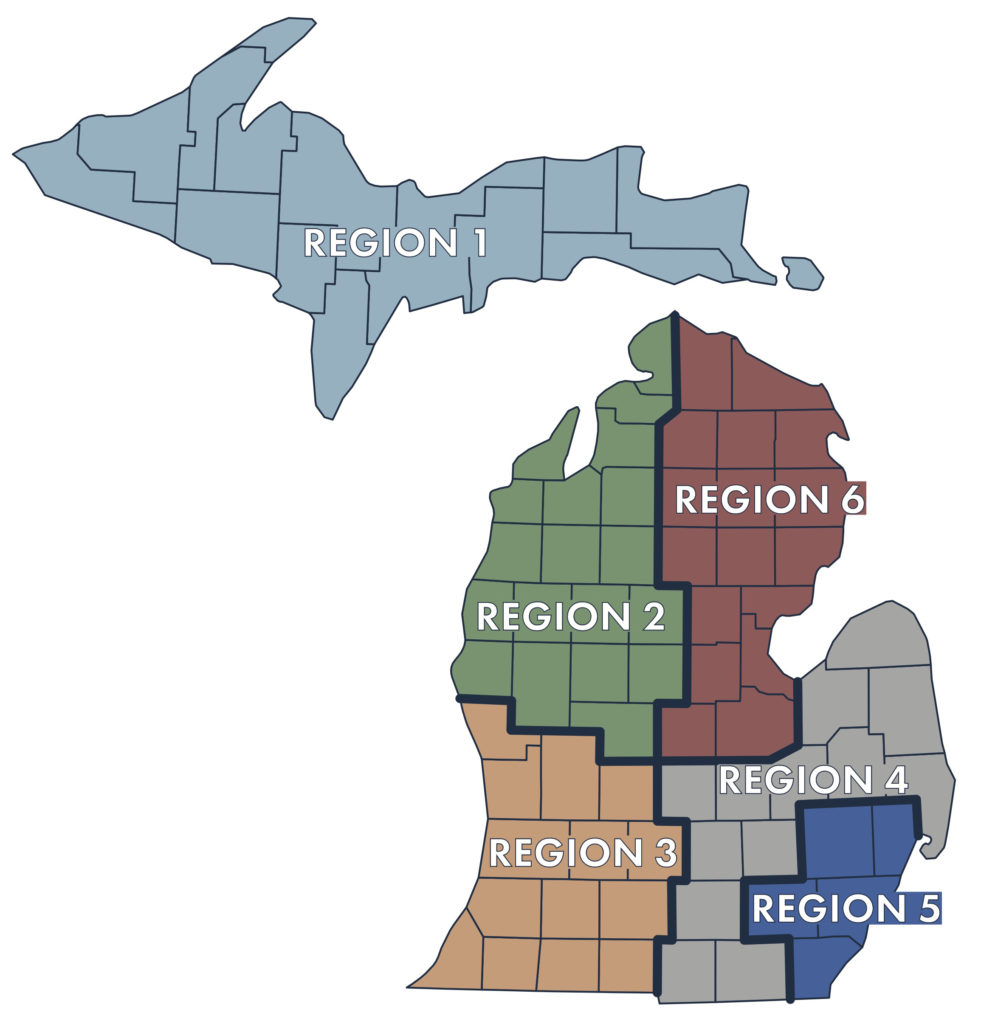MAC-backed revenue sharing bills introduced
 Two different packages of bills that create a state Revenue Sharing Trust Fund and direct the expenditures of such a fund have been introduced in the Legislature.
Two different packages of bills that create a state Revenue Sharing Trust Fund and direct the expenditures of such a fund have been introduced in the Legislature.
Senate Bills 229–230, by Sen. Veronica Klinefelt (D-Macomb), are backed by MAC and carve out a portion of the state’s sales tax for deposit into the fund (10% of all funds collected by 4 percentage points of the sales tax rate).
The bills also:
- Stipulate the money in the fund does not lapse to the state’s General Fund
- Allocate an even split of the funds between counties and CVTs (cities, villages and townships)
A dedicated fund helps protect revenue sharing dollars from being raided during the annual appropriations process. The 10 percent collection rate would boost current allocations to counties and reflect the true intention of revenue sharing by requiring a portion of the state’s revenue to be shared with local governments. In this system, if sales tax revenue goes up, revenue sharing would go up, if the sales tax revenue fell, so would the money in the fund.
Legislation advanced by the Michigan Municipal League (House Bills 4274–75 and SBs 182–183) takes a slightly different approach.
That package would create a base in a Revenue Sharing Trust Fund of the Fiscal Year 2024 recommended revenue sharing amounts and distribute funds on the current allocation method. The fund could accept additional monies but would not require additional deposits into the fund. While this approach would help insulate local governments from further raids on revenue sharing by the Legislature, it does not build in a system for growth.
The current revenue sharing system is overly complicated and not well understood. For example, many don’t know that counties don’t share in more than $1 billion in constitutional revenue sharing that all CVTs receive per capita. For a quick primer on the revenue sharing program, check out this slide deck prepared by the House Fiscal Agency.
Parity on the statutory side of revenue sharing, as reflected in Sen. Klinefelt’s bills mentioned above, is appropriate given the fact counties serve 100 percent of the state’s population and have significantly more mandated services to provide to our residents than other local governments.
MAC also is advocating for an increase in the amount in the fund to ensure no local government is faced with reductions in their allocation and to ensure the state supports the work done at the regional and local levels.
A survey recently conducted by MAC found members would use additional revenue sharing dollars to invest in communities in ways long supported by the Legislature, such as infrastructure; unfunded liabilities; customer service improvements; attraction and retention of employees; economic development; and cybersecurity.
Revenue sharing is the most flexible form of state aid to counties, which makes it the most effective method to fund generational investments in public services — with decisions made at the local level. Reform of revenue sharing is one of MAC’s top legislative priorities for 2023.
For more information on this issue, contact Deena Bosworth at bosworth@micounties.org.
Juvenile Justice Reform Task Force testifies before Senate panel
 Members of the Michigan Task Force on Juvenile Justice Reform testified before the Senate Committee on Civil Rights, Judiciary and Public Safety this week on the 32 recommendations they provided to the Legislature last July.
Members of the Michigan Task Force on Juvenile Justice Reform testified before the Senate Committee on Civil Rights, Judiciary and Public Safety this week on the 32 recommendations they provided to the Legislature last July.
Of these recommendations, two tiers of priorities have been identified.
The first tier, consisting of six priorities, will be introduced in an approximately 15-bill package later this spring. This package would include expansions to the County Child Care Fund (CCF), including an increase in reimbursement rates to counties from 50 percent to 75 percent for community-based services; expanding eligibility for diversion; and requiring the use of risk and needs assessments.
(UPDATE: Please see clarification on CCF rate changes in the Aug. 25, 2023, Legislative Update.)
In addition to expanding the CCF, the Michigan Indigent Defense Commission would be expanded to implement youth defense standards in local county defense systems, the State Appellate Defender’s Office would be required to oversee a system of appellate defense for juveniles and court fines and fees for juveniles would be waived.
MAC supports this bill package and will continue working to implement the recommendations of the task force.
For more information on this issue, please contact Samantha Gibson at gibson@micounties.org.
New rules on materials management loom for counties
 On March 29, new state legal provisions kick in requiring counties to update their Materials Management Plans (MMP) and increase recycling rates in Michigan.
On March 29, new state legal provisions kick in requiring counties to update their Materials Management Plans (MMP) and increase recycling rates in Michigan.
(NOTE: If you listened to this week’s Podcast 83, be advised that timetables shared there were incorrect; see correct information below.)
A 180-day window for counties to determine whether they planned to file a Notice of Intent (NOI) with the Department of Environment, Great Lakes, and Energy (EGLE) does not officially begin until the director of the EGLE initiates it.
After those 180 days, if a county declines to prepare a new MMP, EGLE will create one for them and the county will then be responsible for implementing the plan. If a county decides to file an NOI and prepare their own MMP, they will have 36 months to plan and receive approval from EGLE. Counties have the option to collaborate with neighboring counties to create regional plans.
Counties that file an NOI will be provided funding from the state to prepare their plans. Each county will be granted a base of $60,000, plus 50 cents per capita, up to $300,000. An additional $10,000 will be given to each county that enters a multi-county plan.
Until the EGLE director initiates the process, counties can consider their waste capacity limits, their willingness to draft their own MMP and whether they would like to partner with other counties.
In the meantime, EGLE will be hosting monthly webinars to walk counties through the process. We encourage each county to have at least one representative participate in these discussions. The meetings are typically held on the third Wednesday of each month; however, April’s meeting has been cancelled.
The next scheduled meeting will be from 1:30 p.m. to 3 p.m. on May 17. To be included in future meeting notices, please email egle-mmp@michigan.gov.
For more information on this issue, contact Madeline Fata at fata@micounties.org.
Wayne County addresses Senate panel on juvenile facility crisis
 Wayne County officials were called to testify this week before a Senate Appropriations subcommittee in the wake of news reports of major problems at the county’s juvenile center.
Wayne County officials were called to testify this week before a Senate Appropriations subcommittee in the wake of news reports of major problems at the county’s juvenile center.
Every county in Michigan is suffering from a bed and/or staffing shortage within the juvenile justice system. Incidents like those in Wayne can and should be avoided with the help of the state Department of Health and Human Services. Without proper funding of our juvenile justice system, staff go underpaid and overworked, then leave. Youths go without the services they need and deserve, and risks to public safety are posed.
Court-involved youth in Michigan are currently staying in short-term detention facilities, such as Wayne’s, for months or, in some cases, even years. The staffing shortage has led to countless empty beds in residential facilities that would otherwise be in use. Northern Michigan and the Upper Peninsula do not have access to a local facility and are forced to send youths to Southern Michigan or out of state. This issue has become a crisis, and the time is now for our state to provide funding to alleviate the burden on this system.
MAC has requested that the state fund staff recruitment, retention, and training to resolve the current staffing shortage crisis, as well as funding for the creation of an additional facility to serve northern counties who do not have access.
For more information on this issue, contact Samantha Gibson at gibson@micounties.org.
Podcast 83 looks at juvenile justice, solid waste, revenue sharing
 Major changes are looming for three significant areas of county responsibility, MAC’s Podcast 83 team said this week.
Major changes are looming for three significant areas of county responsibility, MAC’s Podcast 83 team said this week.
Host Stephan Currie and the MAC Governmental Affairs Team of Deena Bosworth, Madeline Fata and Samantha Gibson took in-depth looks at the following issues in Lansing:
- Juvenile justice reform legislation, with Gibson saying a large packet of bills would constitute “a whole juvenile system overhaul”
- Revenue sharing reform, with Bosworth detailing her recent testimony to multiple legislative panels on MAC’s plan to create a protected fund for revenue sharing payments and create parity between counties and other local governments on such appropriations
- Materials management, with Fata reporting that the clock is ticking for counties to make a big decision on whether, under state law passed last year, they will write new solid waste plans or let the state Department of Environment, Great Lakes and Energy do so (Correction: Some of the timing mentioned in this week’s podcast on this issue is incorrect; please refer to the written item in this Legislative Update for proper details.)
See the full video, recorded on March 20, by clicking here.
Previous episodes can be seen at MAC’s YouTube Channel.
And you always can find details about Podcast 83 on the MAC website.
Opioid Advisory Commission releases annual report
 The Michigan Opioid Advisory Commission released its 2023 Annual Report: A Planning Guide for State Policy Makers on Thursday (March 23). The report provides a comprehensive overview of the background of the opioid epidemic in Michigan and the national landscape in which the opioid settlements are taking place. The report details the state of Michigan’s intended uses of current settlement funds and outlines approved uses of funds as provided in Exhibit E.
The Michigan Opioid Advisory Commission released its 2023 Annual Report: A Planning Guide for State Policy Makers on Thursday (March 23). The report provides a comprehensive overview of the background of the opioid epidemic in Michigan and the national landscape in which the opioid settlements are taking place. The report details the state of Michigan’s intended uses of current settlement funds and outlines approved uses of funds as provided in Exhibit E.
The report looks specifically at the Principles for the Use of Funds From the Opioid Litigation and provides a scorecard for Michigan’s adoption of these principles, identifying strategies and gaps. The final section of the report outlines the commission’s findings and recommendations, as well as the Opioid Advisory Commissions strategic plan and planning considerations.
As a reminder, local governments have been given an opportunity to participate in national Opioid Settlements with Teva, Allergan, CVS and Walmart. To participate in these settlements, counties must complete a participation form and return the form by April 18. We encourage all counties to participate in these additional settlements.
For more information on this issue, contact Amy Dolinky at dolinky@micounties.org.
Staff  picks
picks
- Rural Energy for America Program Success Stories Report (Environmental Law and Policy Center)
- Challenges facing Michigan local governments (MSU Center for Local Government Finance and Policy)
- Emotional stress remains a burden on students as COVID fades (Gallup)
- Saugatuck becomes latest lakeshore community to grapple over short-term rentals (Holland Sentinel)

 A new regulation to allow child welfare agencies to adopt less stringent licensing standards for all relative and kinship foster family homes was offered by federal officials last month. Counties with foster care jurisdiction are
A new regulation to allow child welfare agencies to adopt less stringent licensing standards for all relative and kinship foster family homes was offered by federal officials last month. Counties with foster care jurisdiction are  National County Government Month (NCGM), held each April, is an annual celebration of county government. Since 1991, the National Association of Counties (NACo) has encouraged counties to actively promote county roles and responsibilities in serving residents. Counties can schedule activities any time during the month. NCGM is an excellent opportunity for your county to highlight effective or innovative county programs and raise public awareness of services provided to the community.
National County Government Month (NCGM), held each April, is an annual celebration of county government. Since 1991, the National Association of Counties (NACo) has encouraged counties to actively promote county roles and responsibilities in serving residents. Counties can schedule activities any time during the month. NCGM is an excellent opportunity for your county to highlight effective or innovative county programs and raise public awareness of services provided to the community. Michigan’s utility regulatory will start requiring a $35 per day credit in power outages, indexed for inflation, a House committee was told Wednesday.
Michigan’s utility regulatory will start requiring a $35 per day credit in power outages, indexed for inflation, a House committee was told Wednesday. Registration opened today (March 10) for the 2023 Michigan Counties Legislative Conference, the first of MAC’s two signature events for our 125th Anniversary year.
Registration opened today (March 10) for the 2023 Michigan Counties Legislative Conference, the first of MAC’s two signature events for our 125th Anniversary year. The Radisson Hotel Lansing at the Capitol is again providing a special group rate for the event and is connected via the newly renovated pedestrian bridge to the Lansing Center itself. The bridge now offers improved lighting, new security systems, ventilation system and carpet.
The Radisson Hotel Lansing at the Capitol is again providing a special group rate for the event and is connected via the newly renovated pedestrian bridge to the Lansing Center itself. The bridge now offers improved lighting, new security systems, ventilation system and carpet. In their regular weekly episode, MAC’s Podcast 83 team discussed the following news involving county governments in Michigan:
In their regular weekly episode, MAC’s Podcast 83 team discussed the following news involving county governments in Michigan: Local governments will be given an opportunity to participate in national Opioid Settlements with Teva, Allergan, CVS and Walmart. Collectively, these settlements are expected to bring in around $450 million to Michigan and will have the same allowable uses of funds as the J&J and Distributors settlements.
Local governments will be given an opportunity to participate in national Opioid Settlements with Teva, Allergan, CVS and Walmart. Collectively, these settlements are expected to bring in around $450 million to Michigan and will have the same allowable uses of funds as the J&J and Distributors settlements. MAC has created supplemental documents to the
MAC has created supplemental documents to the  The National Association of Counties issued the following alert on Thursday:
The National Association of Counties issued the following alert on Thursday: The nonpartisan
The nonpartisan  A Kent County commissioner and the executive director of MAC were included in appointments by Gov. Gretchen Whitmer for the Michigan State Housing Development Authority (MSHDA) Statewide Housing Partnership.
A Kent County commissioner and the executive director of MAC were included in appointments by Gov. Gretchen Whitmer for the Michigan State Housing Development Authority (MSHDA) Statewide Housing Partnership. A bill to spend another $1.3 billion in the current fiscal year, largely for economic development incentives, cleared the Legislature this week and was sent to Gov. Gretchen Whitmer for final approval.
A bill to spend another $1.3 billion in the current fiscal year, largely for economic development incentives, cleared the Legislature this week and was sent to Gov. Gretchen Whitmer for final approval. This week, the Michigan Supreme Court (MSC) held oral arguments in a case challenging a key source of revenue for local court operations. In
This week, the Michigan Supreme Court (MSC) held oral arguments in a case challenging a key source of revenue for local court operations. In  Legislation to fully reimburse counties for property tax losses due to state-mandated exemptions for disabled veterans returned to the legislative slate this week.
Legislation to fully reimburse counties for property tax losses due to state-mandated exemptions for disabled veterans returned to the legislative slate this week. County medical care facilities (MCFS), caught in an ongoing and industry-wide staffing crunch, will receive state grants for workforce retention if Gov. Gretchen Whitmer signs House Bill 4016.
County medical care facilities (MCFS), caught in an ongoing and industry-wide staffing crunch, will receive state grants for workforce retention if Gov. Gretchen Whitmer signs House Bill 4016. MAC has begun an internal review of a unique property tax proposal unveiled recently by Sen. Ed McBroom (R-Dickinson).
MAC has begun an internal review of a unique property tax proposal unveiled recently by Sen. Ed McBroom (R-Dickinson).
 Hundreds of thousands of Michigan residents remain without power on Friday as the state’s two major utilities continue to deal with the aftermath of a large ice storm that hit mid-week across Southern Michigan.
Hundreds of thousands of Michigan residents remain without power on Friday as the state’s two major utilities continue to deal with the aftermath of a large ice storm that hit mid-week across Southern Michigan. County commissioners interested in serving on the MAC Board of Directors have until March 24, 2023, to file for special elections to fill five seats on the Board at the 2023 Michigan Counties Legislative Conference.
County commissioners interested in serving on the MAC Board of Directors have until March 24, 2023, to file for special elections to fill five seats on the Board at the 2023 Michigan Counties Legislative Conference. The U.S. Department of Treasury’s Contact Center for the American Rescue Plan Act (ARPA) reopened on Feb. 21. The Contact Center closed last year due to an administrative funding shortfall, which impacted Treasury’s ability to provide technical assistance and support to counties that received State and Local Fiscal Recovery Funds (SLFRF), Local Assistance and Tribal Consistency Funds (LATCF), Emergency Rental Assistance (ERA) funds and more.
The U.S. Department of Treasury’s Contact Center for the American Rescue Plan Act (ARPA) reopened on Feb. 21. The Contact Center closed last year due to an administrative funding shortfall, which impacted Treasury’s ability to provide technical assistance and support to counties that received State and Local Fiscal Recovery Funds (SLFRF), Local Assistance and Tribal Consistency Funds (LATCF), Emergency Rental Assistance (ERA) funds and more. MSU Extension and the Michigan Department of Treasury will cover the fundamentals of budgeting during uncertain economic times, tracking long-term fiscal health, and operational best practices.
MSU Extension and the Michigan Department of Treasury will cover the fundamentals of budgeting during uncertain economic times, tracking long-term fiscal health, and operational best practices. Counties have until March 3 to get the best fee on their applications for a 2023 National Association of Counties (NACo) Achievement Award.
Counties have until March 3 to get the best fee on their applications for a 2023 National Association of Counties (NACo) Achievement Award.





